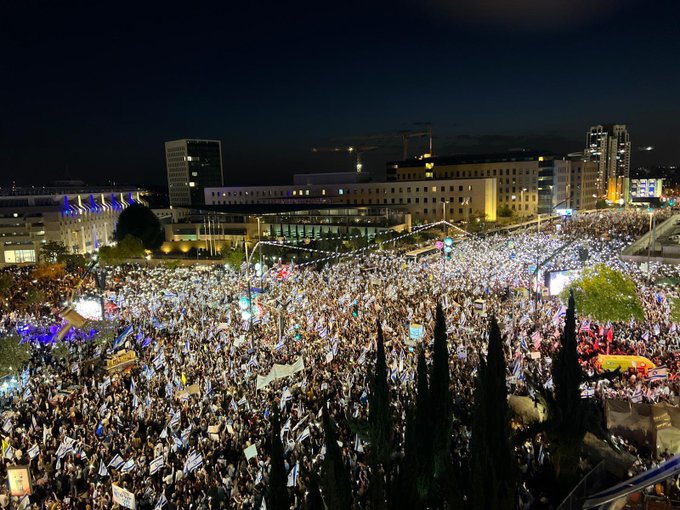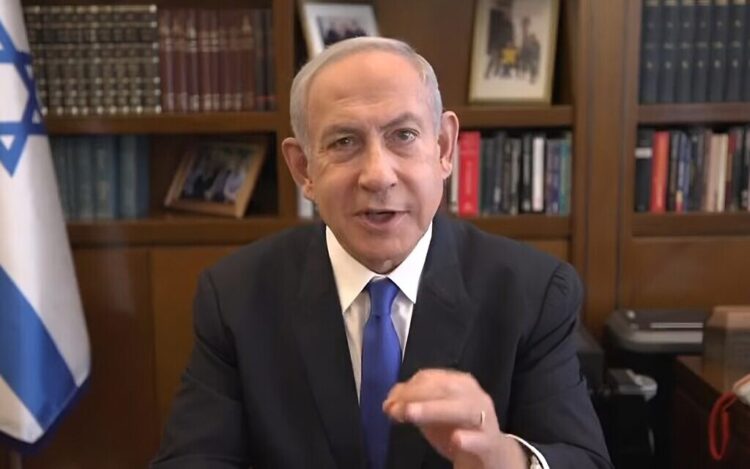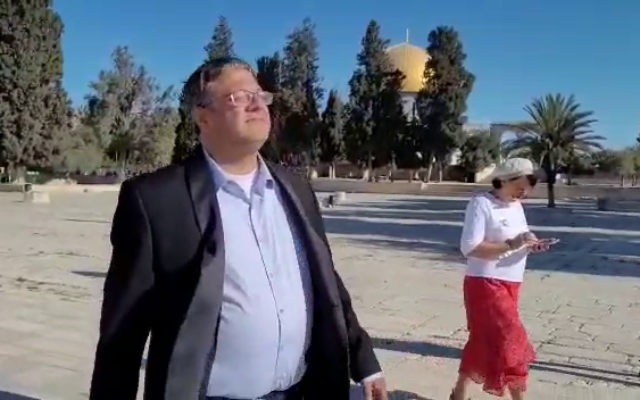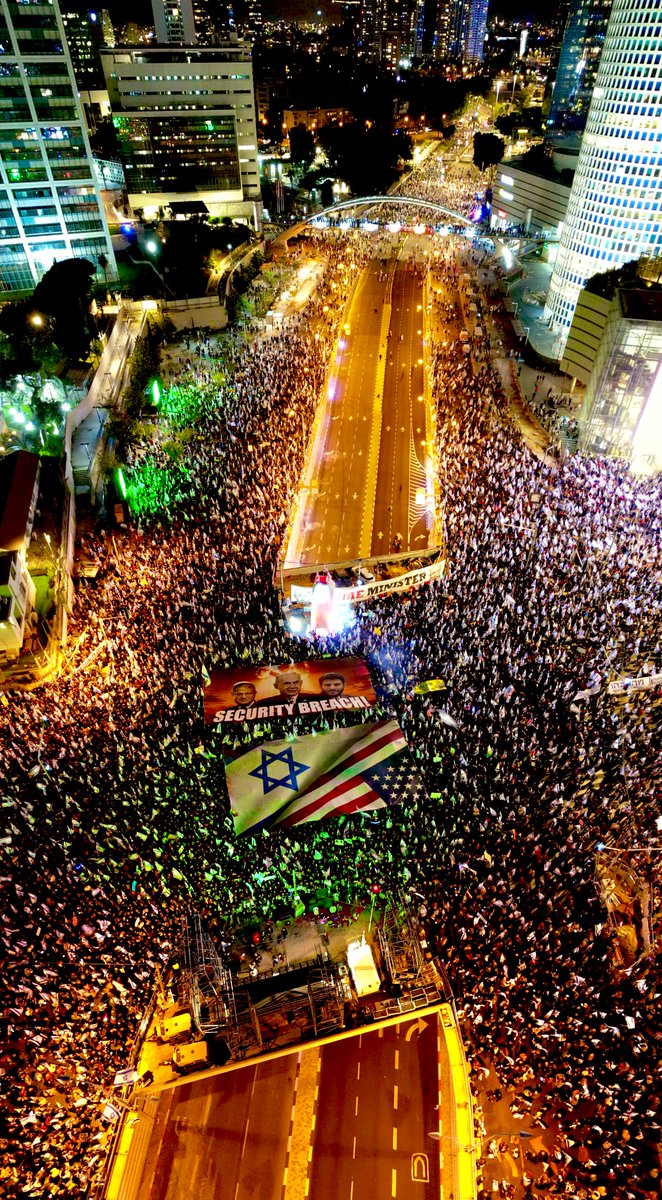Six months after Prime Minister Benjamin Netanyahu announced his intention to overhaul Israel’s judiciary, thereby setting off recurring nation-wide protests, the debate over his contentious and controversial plan is still boiling over furiously and has yet to be resolved by compromise.
The ongoing turmoil has split the country into two warring camps. This does not bode well for Israel. It means that Israel — the most stable parliamentary democracy in the Middle East — will continue to be roiled by unrest and a level of unprecedented disunity within its ranks, emboldening regional foes like Hezbollah, Iran and Hamas.
The latest chapter in this bitter conflict began on July 10, when the Knesset voted to pass the first reading of a bill to limit the oversight powers of the Supreme Court. It sailed through by a margin of 64 to 56, reflecting Netanyahu’s comfortable majority in parliament.
Two further readings will be required for the bill to become law. By all accounts, Netanyahu hopes to settle the matter by the end of July. The bill is being shepherded through the Knesset by Justice Minister Yariv Levin and Simcha Rothman, the chairman of the Knesset’s Constitution, Law and Justice Committee.

In response to the government’s proposed legislation, tens of thousands of Israelis took to the streets and roads across Israel on July 11 to vent their intense displeasure.
Netanyahu’s supporters have come out in force to endorse his plan, first in March and then in April.

Israeli Arabs, comprising 21 percent of Israel’s population, have generally not participated in the protest movement, though some regard it as an opportunity to further their demands for full equality.
The proposed legislation has been criticized by Israel’s chief ally, the United States. Tom Nides, the outgoing U.S. ambassador, has urged Netanyahu “to tap the brakes” and “slow down” to build a broad consensus for the measures. President Joe Biden has been working to stop Israel from “going off the rails,” according to reports.

By way of reaction, Levin has accused the Biden administration of cooperating with the protesters.
The bill under current consideration would prevent the Supreme Court from overruling the government on the grounds of “reasonableness,” a common legal term indicating that a governmental decision was made without a full consideration of all the relevant factors.
Last year, the court ruled that Netanyahu had acted unreasonably by appointing Aryeh Deri, the leader of the ultra-Orthodox Shas Party and a convicted tax evader, a minister. As a result, Deri could not join the cabinet.
Critics fear that the bill, if passed, would embolden the government to act irresponsibly and even recklessly in pursuit of its highly divisive agenda.
In general, the bill would broadly weaken the ability of the Supreme Court to strike down government decisions and bolster the power of the executive branch, thereby upsetting Israel’s refined system of checks and balances.
Critics charge that it would not only jeopardize Israeli democracy, but enable the government to scrap Netanyahu’s current trial on criminal charges of fraud, breach of trust and bribery and sack Attorney-General Gali Baharav-Miara, who is in charge of his case.

Spouting a completely different argument, Netanyahu contends that the bill would strengthen democracy. Last month, Netanyahu told The Wall Street Journal that he would not advance legislation to allow the Knesset to override Supreme Court decisions. However, one of his closest associates, Culture and Sports Minister Miki Zohar, contradicted him.

Netanyahu’s supporters claim that the Supreme Court undermines democracy by endowing unelected judges with powers that only elected politicians should possesses.
Far from being a dispute only about the role of the judiciary in a diverse society, the ongoing controversy is fundamentally ideological in nature.
In general, it pits secular and moderate Israelis with a pluralistic vision of the country against more traditional, religious and right-wing Israelis who want to convert Israel into a true ethnostate by making it more Jewish and nationalistic in theory and practice.
It is less than surprising that Netanyahu is ardently promoting this objective, given the reality that the coalition he has presided over since last December is the most right-wing and religiously conservative administration since the establishment of Israel as a sovereign state 75 years ago.
Due to a wave of nation-wide protests and labor strikes, Netanyahu suspended consideration of the bill this past March to permit time for talks. Shortly afterward, Israeli President Isaac Herzog launched negotiations to find a compromise, warning that Israel stood on the brink of civil war and that Israel’s enemies would interpret its internal divisions as a sign of military weakness.

As they got under way, Levin punctured the upbeat mood by promising to make “a supreme effort” to ensure the passage of the legislation before the end of summer.
On May 1, Benny Gantz, the leader of the centrist National Unity Party and the former defence minister, disclosed that the talks had borne no fruit. “The negotiations aren’t progressing at all on any issue,” he said glumly.
A week later, Avigdor Liberman, the leader of the Israel Beytenu Party and a former minister of foreign affairs under Netanyahu, said that the talks were heading nowhere and that Netanyahu’s goal was “to take over the Supreme Court.”
Although Netanyahu is personally secular, his modus operandi is and has always been political survival. Consquently, he has no qualms whatsoever in aligning himself with extremists.

His allies include religious nationalists like Finance Minister Bezalel Smotrich and National Security Minister Itamar Ben-Gvir, whose aim is to annex much of the West Bank. He has also partnered with transactional non-Zionist ultra-Orthodox Jewish politicians. They trade their political clout for immense government subsidies to support their theocratic and cloistered lifestyle and to keep the community’s military-age sons from serving in the armed forces.
Netanyahu faces a wrenching dilemma as he marches forward with his plan to reshape Israel’s judicial landscape.
If he proceeds, he will ignite further turmoil and deepen divisions, with all its attendant internal and external consequences. If he drops his campaign to reform the legal system, he would alienate his constituents and jeopardize his coalition.
Since Netanyahu’s overarching goal is political survival at all costs, he will likely proceed with the overhaul, plunging Israel deeper into the abyss.

